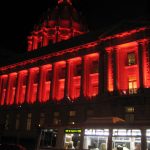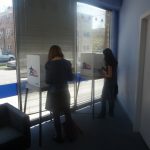Squeezed to the point of cutting vital social services and deferring maintenance, local governments and nonprofit groups are turning to the Internet and other digital tools to increase transparency. Perched on the edge of Silicon Valley, San Francisco can’t help but be a hotbed of this good-government “hactivism.”
These services are interlinked, building on each other. Yet much of the information is selective, incomplete, boring or hard to access in its current format.
DataSF.org is a massive repository of raw city government information — reports and spreadsheet from dozens of government agencies. The city’s director of customer relationship management, Jay Nath, launched the website in 2009 as a tool to improve transparency and make government more efficient. Nath and his team have challenged programmers and policy wonks to create innovative desktop and mobile apps to check for errors in the data. One example: A mobile app called SF Routsey uses open data about traffic conditions and bus stops to help speed users’ commutes. DataSF has supplied government transparency activists with a place to find information to lobby City Hall. The entire city budget is there, in a spreadsheet. But some of it is mundane. Among the top data sets: “San Francisco Wind Monitoring Data” and “Port of San Francisco 2010 Cruise Schedule.”
Govfresh.com is a national website invented in San Francisco that encourages local government to collaborate and engage residents. Its creator, Luke Fretwell, is a George Mason University graduate who recently moved to the Bay Area and in his day job advises startup companies and governments on branding and social media strategy. “I saw a huge opportunity there to really educate and advocate,” Fretwell said. “Sometimes government has a hard time communicating what it’s doing. What we try and do is filter that into something that is more digestible.” Govfresh has sponsored Web application development marathons and a June San Francisco mayoral debate about open government, at which candidates tried to one-up each other by pledging support for online access.
“Open government to me is about government wide open so that anybody and everybody can in fact know what is going on,” said one mayoral hopeful, state Sen. Leland Yee of San Francisco. “It’s about creating a new space, and frankly a new relationship, between government and San Franciscans,” said another candidate, Board of Supervisors President David Chiu.
Performance Measurement Team: San Francisco voters, frustrated with reports of waste and fraud in local government, passed 2008’s Proposition C, setting up a unit within the city controller’s office to produce performance scorecards on department heads and managers. Team Lead Dennis McCormick said the aim of his unit is to find waste and improve decision-making. It produces a bimonthly “government barometer.”
It also goes into the annual budget proposal from the mayor’s office each spring. The unit’s reports are posted on DataSF. According to a February barometer, the Department of Public Works significantly increased how promptly it responded to pothole service requests. By then, the department was addressing nearly 90 percent of requests to fill potholes within 72 hours. The Department of Public Works used that info to create DPWStat, an internal performance review allowing managers to spot problem areas.
This story appeared in the fall print edition and was part of the Building a Better Budget package of stories.








